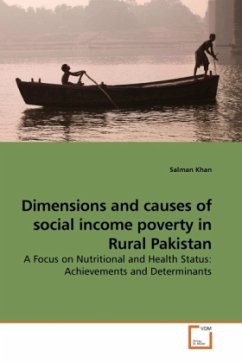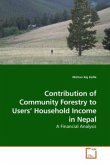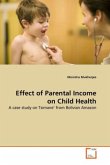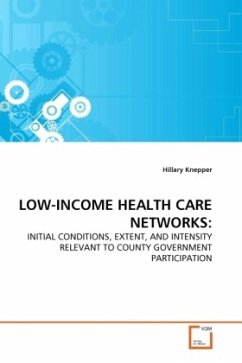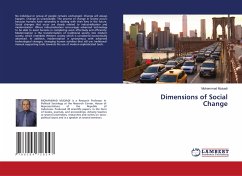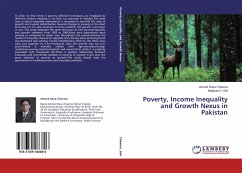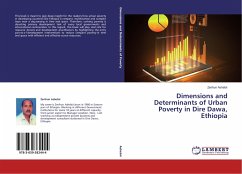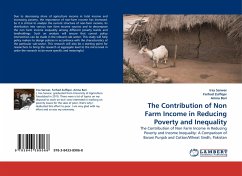This thesis explores the dimensions and causes of social income poverty in Rural Pakistan, focusing on nutrition and health. The analysis also tests the efficiency-wage hypothesis which links better health to better income via higher productivity. The results show that serious nutritional and health poverty exists within the sample. Other key findings are: firstly, the need for subsidised food and nutrient support programmes is emphasised; next, the potential of food prices as policy tools to improve health and nutrition emerges repeatedly; and thirdly, human capital (in particular own education and mother s schooling), as well as village facilities such as health care, sanitation, and water supply, are consistently observed to boost nutritional and health status of both children and adults. The existence of an efficiency-wage nexus is also supported by the findings. In general, the need for investment in human capital and social infrastructure emerges strongly, with clear intrinsic benefits, but also due to the spinoffs it generates in terms of higher potential levels of productivity, and hence overall economic development.
Bitte wählen Sie Ihr Anliegen aus.
Rechnungen
Retourenschein anfordern
Bestellstatus
Storno

